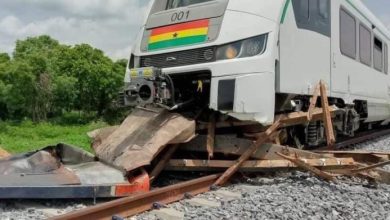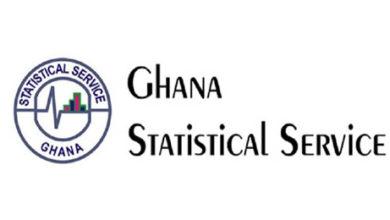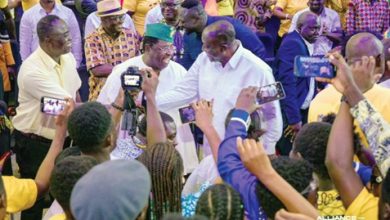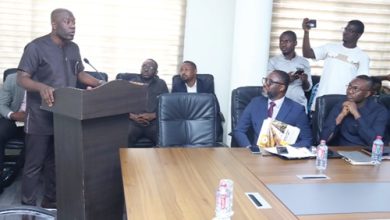MPs study budget prior to debate

A post-budget workshop to enable Members of Parliament (MPs) to deliberate on the content of the 2020 Budget opened in Parliament house over the weekend.
The two-day workshop, in accordance with the practice of the house, will afford MPs the opportunity to critically study the budget as presented to them by the Finance Minister, Mr Ken Ofori-Atta, to enable them to sufficiently debate it.
Annual event
The annual event, which was held outside the Greater Accra Region for a number of years, was held in Parliament’s Job 600 Complex to save the nation the cost of travelling outside Accra with a huge budget.
It is on the theme: “Consolidating the gains for growth, jobs and prosperity for all”, just like the 2020 Budget Statement and Economic Policy of the Government.
Opening the workshop, the Speaker of Parliament, Professor Aaron Michael Oquaye, called on MPs to engage in meaningful deliberations and make all the necessary documents available to the house to enrich discussions.
He said he was happy that members were not traveling outside Accra to return with a huge budget of about GH¢1.7 million, adding that such things prevented MPs and parliamentary staff from enjoying better privileges, including housing and vehicles.
Post budget
According to the Speaker, the post-budget workshop was a budgetary affair which involved opportunity cost on how best to maximise the use of resources in terms of the benefits.
He noted that “it is important to develop this politics of issues” and urged the legislators not to give room to “politics of vituperations”.
The workshop will tackle topics such as: “Policy Underpinnings of the 2020 Budget”, “Overview of the 2020 Budget – Macro Economic and Fiscal Management” and “What to Consider in Analysing the 2020 Sector Budgets”.
Also to be considered are: “Planning and Delivery on Infrastructure”, “Revenue Mobilisation”, “Workers’ Perspective on the 2020 Budget” and “The 2020 Budget and the Energy Sector”.
The Majority Leader and Minister of Parliamentary Affairs, Mr Osei Kyei-Mensah-Bonsu, asserted that MPs had a duty to thoroughly scrutinise the budget, devoid of political differences, and find common grounds on technical matters germane to its content.
Issues examined
He, therefore, urged the MPs to critically examine issues for well-informed contributions, rather than propaganda, when the debate on the 2020 Budget started today, November 18, 2019.
He said he was optimistic that the debate would be about the principles of the budget and urged members to discuss that, rather than the estimates.
The Minority Leader, Mr Haruna Iddrisu, said the Finance Minister must brief the house on how much money the government had pumped into cleaning the financial sector.
He suggested that subsequent budgets should indicate Ghana’s commitment to achieve the Sustainable Development Goals (SDGs) and called on the government to stick to its pledge of avoiding budget overruns next year.
Omitted Road projects
The Finance Minister presented the 2020 Budget Statement to Parliament last Wednesday and there were concerns over the absence of road projects in the Volta Region in the budget, compelling Mr Ofori-Atta to later present to Parliament a list of critical roads omitted in the budget.
Mr Ofori-Atta presented the document last Friday and asked Parliament to amend the budget with the new list, saying his attention was drawn to the omission by the Volta Regional Minister, Dr Archibald Yao Letsa, and the Energy Minister, Mr John Peter Amewu.
2020 budget
The Minister of Finance said Ghana’s economy still faced some structural ‘headwinds’, despite its positive outlook for 2020.
“We still have some structural headwinds in terms of the wages, interest and revenue to deal with as the economy grows,” he said.
He said the two main challenges the nation continued to face were the energy sector IPP payments and the financial sector clean-up, which was being done to ensure value for money.
He said the government had targeted 6.8 per cent Gross Domestic Product (GDP) growth, non-oil growth of 4.6 per cent, inflation of eight per cent and overall deficit of four per cent.
He gave an assurance that the government was committed to ensuring that there was no budgetary overruns or overspending next year, an election year.





